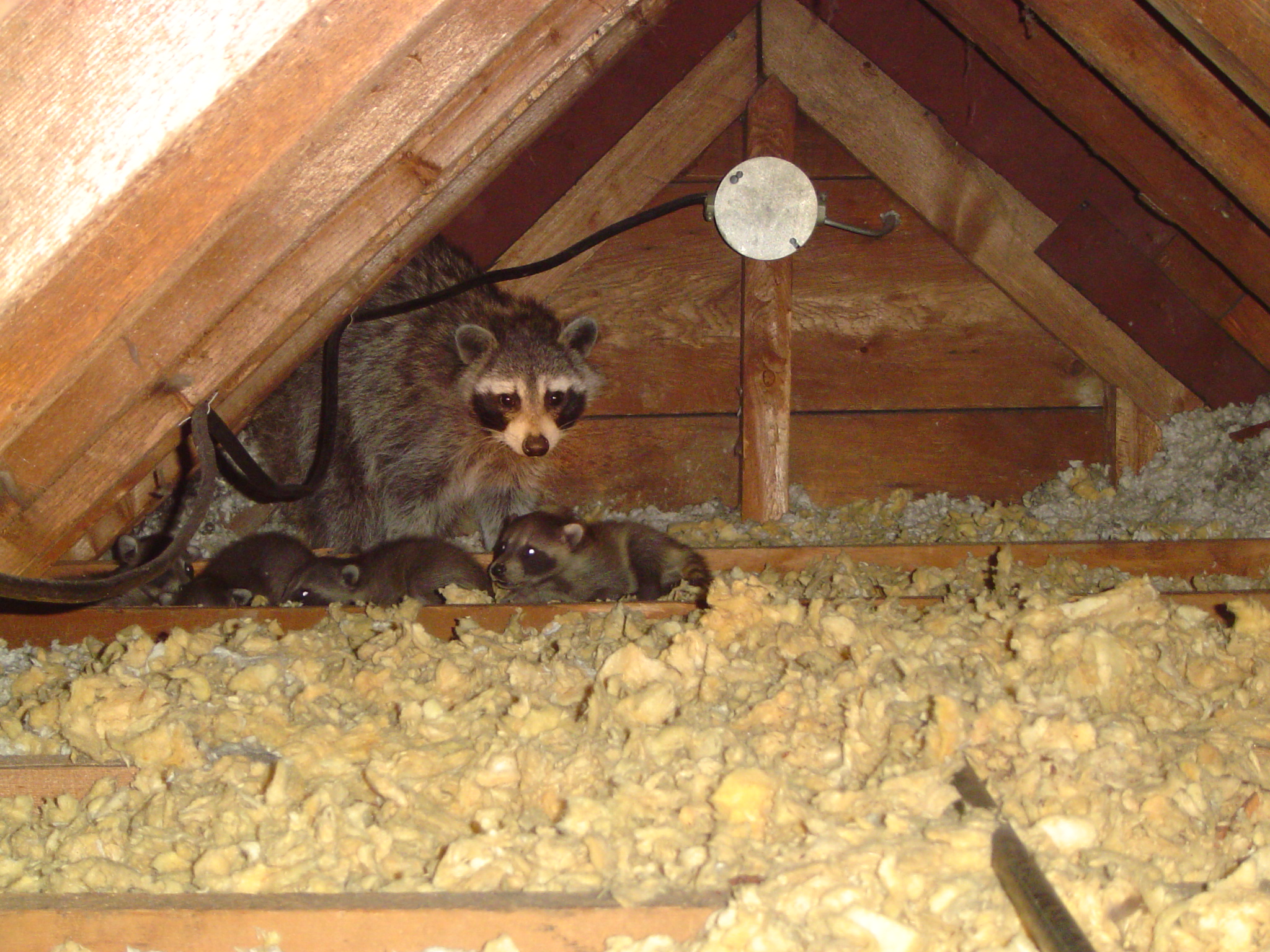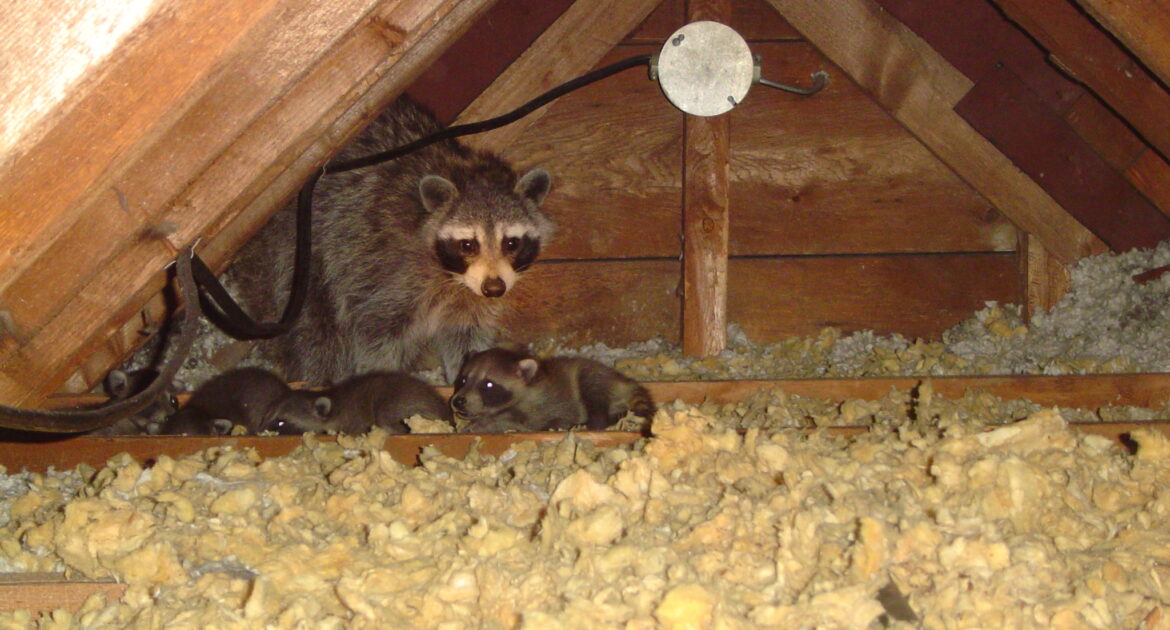Safe removal of baby raccoons or any wildlife requires professional services. Federal and provincial laws protect wildlife against inhumane treatment and trapping methods. Most DIY raccoon removal techniques are dangerous and ineffective, putting homeowners and animals at risk.
Regarding baby wildlife, their survival depends on maintaining access to a mother. Too many newborns and young raccoons die because of inexperience and inhumane treatment during the removal process.
If you have a raccoon problem, do not handle it with DIY methods. Call the professionals and ensure both yours and the animal’s safety.
Keeping Babies and Mom Together
Raccoon babies or kits are incapable of surviving without their mothers. The kits depend on the mother for food, shelter, and protection for at least the first year of life. For the first couple weeks of life, the babies can’t stand, walk, or get around too well on their own.
It is essential to survival that a kit remains with its mother. Some people feel the need to rescue baby raccoons when they discover them alone in a nest. While the kits may look alone, the mother may be out looking for food. Mother raccoons will forage for food whenever possible, even during the day.
If you find baby raccoons in your home or on your property, contact raccoon removal in Oakville. The service will send a crew to assess the situation and ensure the babies are protected.
Leaving Raccoon Removal in Oakville to the Professionals
Many homeowners attempt DIY trapping and removal because they believe it is a more cost-effective solution, but that is not the case. Raccoon removal comes with several risks, including bites and scratches. The animals are known carriers of transmissible diseases, including the rabies virus. While rabies infections are rare, they can happen and are more likely to occur when inexperienced people attempt to handle and remove wild animals.
Also, even if a homeowner removes a raccoon successfully, there is still the matter of cleaning up latrines and den sites. Bacteria and viruses can live on fecal matter and in soil for months.
By the time homeowners invest in traps, bait, PPE, and other tools and chemicals necessary for cleaning, they would be better off hiring a professional. On top of standard expenses and equipment, homeowners open themselves up to prosecution if their actions break existing laws.
Understanding Local Laws Surrounding Baby Raccoon Removal
Homeowners taking part in the inhumane removal of raccoons or any wildlife may face criminal charges or fines of up to $5,000 for each offence. The law dictates that raccoon puppies must remain with their mother during the captivity process. If the mother and pups are separated from each other, captors must provide food, water, and care until the mother returns. If the mother does not return, the pups require complete care for at least the first six weeks of life, at which point they may fend for themselves in nature.
Ensuring the safe removal of raccoons is challenging and dangerous. Homeowners should avoid DIY removals because of the risks to themselves and the animals. Wildlife control professionals are the only ones with the knowledge, skills, and tools to keep the animals safe and together during removal.
Securing the Services of Skedaddle Humane Wildlife Control
If you have or suspect raccoons nesting in your house or on your property, contact Skedaddle Humane Wildlife Control. While they will not provide hands-on instruction on how to get rid of raccoons, the service will use exclusionary techniques to force the mother out of the property and then remove the babies, placing them in a baby reunion box outside of your home. Raccoon mothers usually have several den sites and will return to gather their babies and move them to a more suitable location.




